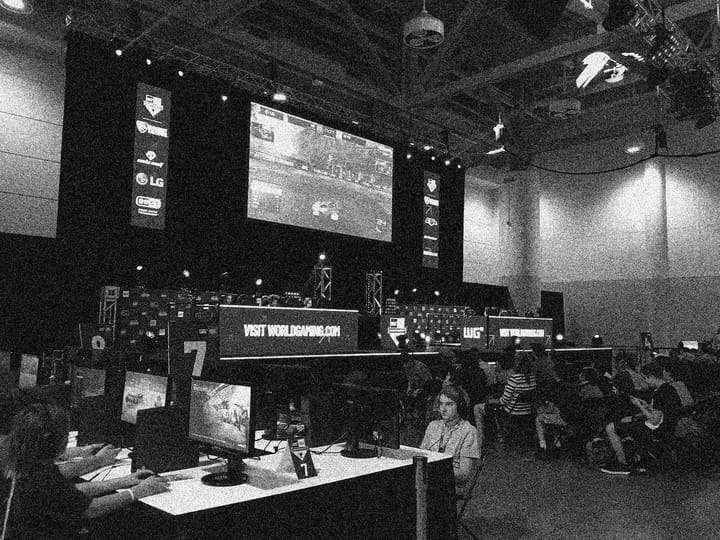Using
Our rationalizations for using social media are much more sophisticated than those for using drugs.

Big tech companies are unreservedly proud to call their products “addictive”: they have designed the entire digital landscape, quite consciously, as a space for “users” to “binge.” The result: most smartphone users spend about “a quarter of their waking lives on their phones”, and the “average global internet user now spends 135 minutes per day on the social industry platforms. If spread uniformly over a life, this would amount to fifty thousand hours.” Silicon Valley is a very capable pusher.
And it knows the danger of what it’s pushing quite well. Many leading tech gurus keep away from their own products and make their children do the same. In the blunt words of former Facebook executive Chamath Palihapitiya, “I can control my decision, which is that I don’t use that shit. I can control my kids’ decisions, which is that they’re not allowed to use that shit.” It’s an awkwardly transparent dynamic: while public schools are flooded with iPads to create “hybrid-learning” environments—the technological solution to teacher shortages—Silicon Valley engineers are eager to send their kids to device-free, private Waldorf schools.
Even a few years ago, this conception of social media as a drug would have been controversial, histrionic even. Today it feels nearly obvious. Everyone seems now to agree that we’re all “digital serfs” of the tech overlords, bonded by the chains of compulsive scrolling.
Silicon Valley defectors like Jaron Lanier and Tristan Harris have a particular story about why social media, and the digital universe in which it is embedded, is so addictive: tech companies make money when our eyes are glued to the screen and we’re liking, retweeting, tagging, etc. To maximize this engagement, the entirety of our past behavior online, documented with an alarming degree of detail, is processed by platform algorithms designed to capture individual attention with remarkable precision and effectiveness. In short, social media is addictive because it is made to be so by machines whose power is a true historical novelty.
There is much truth in this story, represented most succinctly in the Netflix documentary, The Social Dilemma: everyone who is even remotely “connected” has had the experience of being presented with content that is eerily apropos. But the defectors’ story is also a kind of self-worship: we’re all so hooked because the algorithm they created is just too damn powerful. No doubt their call to conscience is real, if belated, but it’s difficult to ignore the mad scientist twinkle in their eyes when they lament the brilliance of their monstrous inventions. “If only we weren’t so smart…”
What they omit is that the entire history of the culture industry since its appearance in the early twentieth century has been that of the increasing individualization of marketing techniques. Before we lamented the siloed micro-communities of Facebook, we did the same for the fragmenting effect of cable television channels. Before Google was scanning our email to target ads, relevant snail mail catalogues were following important life events like clockwork. Social media platforms have certainly enhanced and accelerated already existing cultural trends, but they didn’t create them.
The important question about social media is thus not how, thanks to the unique genius of the tech world, the “like” button exudes a quasi-totemic function on our consciousness, but rather why we are drawn to the pseudo-pleasures of digital culture and connection in the first place. And for this, simple psychological or physiological explanations are quite insufficient.
Capitalist societies are simultaneously depressing and anxiety-producing societies in which to live: depressing because most people lack any control over their conditions of existence, and anxiety-producing because those conditions demand we be in constant competition with one another to survive. It’s only natural that capitalist subjects feel both powerless and frustrated about the state of the world, as well as angry at and alienated from other people.
Social media is a nearly perfect salve for the “psychosocial dislocation” of late capitalism. It is effortlessly easy to use, requiring no frustrating skill acquisition or acclimation. It can be fit in the tiniest of breaks of the day; we can leave reality and be back in 30 seconds. It also gives us an illusion of control: every sentence can be carefully crafted, every picture carefully staged. The digital self is as malleable as social reality is inflexible.
And most importantly, it is a forum both for cultivating a semblance of community amidst social entropy and for letting out one’s rage on other people; for both connecting and tearing asunder. Since the 70s, the associational landscape in America has been dramatically transformed: unions and membership organizations have been gutted, replaced by heartless, top-down non-profits. If you’re not plugged into your church or the community around your kids’ school, your social circles are entirely of your own making. As Wolfgang Streeck summarizes,
In the absence of collective institutions, social structures must be devised individually bottom-up…. Social life consists of individuals building networks of private connections around themselves, as best they can with the means they happen to have in hand. Person-centred relation-making creates lateral social structures that are voluntary and contract-like, which makes them flexible but perishable, requiring continuous “networking” to keep them together and adjust them on a current basis to changing circumstances. An ideal tool for this are the “new social media” that produce social structures for individuals, substituting voluntary for obligatory forms of social relations, and networks of users for communities of citizens.
But users find social media attractive not only as a place to forge new, if thin, connections, but also as a medium for the expression of hate that they lack in their real lives. Like screaming at other drivers from the safe confines of one’s own vehicle, cruelly attacking others online is an appealing means of unleashing the feelings typically muted by basic social etiquette or the expectations of one’s employer. “Trolling” on the internet is not a bug but a feature.
In brief, social media alleviates the isolation and inhumanity of living in capitalist society while also contributing to that isolation and inhumanity. In that, its conceptualization as a narcotic is quite apt: it provides a form of relief that ultimately only exacerbates the underlying problem.
There are many critics who will articulate the most dystopian of hypotheses about social media but then curiously draw back from seemingly obvious conclusions, like social media is bad, and you probably shouldn’t be on it. A justified aversion to moralizing about other people’s coping mechanisms is likely at play here: who am I to demean tenuous connections made in an atomized society? To tear down other people’s havens in a heartless world—especially when I participate in them?
Fair enough. But reasoned non-judgment and personal involvement are subjective filters laid over the thing itself. I personally love—love—everything about cigarettes, but that doesn’t stop me from concluding that, if human beings are interested in their own health and not being subject to a sordid industry of death, they shouldn’t smoke. The social industry cradles and rocks us in webs of opinion, but reality is still out there.
Often this critical hedging comes in the form of social theory: it’s not the platforms themselves but platform capitalism that is the problem. What we need is a state-run platform, like Minitel, or a kind of social media cooperative. These are unquestionably good ideas in themselves: without profit-maximizers on the other side of the screen seeking to capture and monetize as much of our “free time” as possible, social media might not be such cause for consternation. As a point of comparison, state-owned tobacco monopolies tend to cut down on the prevalence of smoking.
But this position puts the cart before the horse. Under current atomized, depressing, and anxiety-producing conditions, if you port all social media users over to a democratically-run cooperative or state-owned platform, you’re going to get many, though not all, of the same problems—trolling, “fake news,” narcissistic preening, etc. Social media is not just itself a profit-making enterprise but also a morbid excrescence of a society ordered by the profit motive.
This leads to a second argument of critical hedging: that social media is indispensable as a tool of political organizing. It’s bad, sure, but it’s where the people are, right? This argument is reminiscent of that made by Karl Kautsky in response to Viktor Adler regarding German tavern culture. Adler believed alcohol was political poison, as “work for the liberation of the working class requires clear-sighted, cold-blooded people”. Kautsky, by contrast, understood that proletarian culture was anchored in the pub: “Without the tavern,” he said, “the German proletariat has not only no social, but also no political, life.”
The argument translates easily into the case of social media, but it’s important to note that Kautsky saw taverns as centers of working-class political life. Social media users, by contrast, skew middle-class and well-educated. And unlike the pub, where novel encounters can and do happen, the social media experience is curated and siloed—the most inhospitable terrain for organizing. Perhaps, with some politically astute posting, it is possible occasionally “to recruit people into corporeal politics”; but more often than not, internet politicos are prey to the classic confusion, prominent since the decline of the old Left, of personal gain and “movement” gain, even if their personal gain is conflicted and confined to the satisfaction of a few likes.
Repulsed by abuse and abstinence alike, the critical hedger urges a new attitude: don’t be used by social media, use it. One might wonder how possible it is to win this game: according to Harris, “social media isn’t a tool that’s just waiting to be used. It has its own goals, and it has its own means of pursuing them by using your psychology against you.” Regardless, plenty of people try to adhere to this basic strategy: post minimally and professionally, always in guarded fashion, and never about anything personal. In essence, this advice amounts to: use social media like you’re on the clock, or at least like you would drink at an office Christmas party. No one wants to be the embarrassing slob who confuses “social” interaction for social interaction.
Social media won’t kill you (directly, at least). If it is something like a drug, among the panoply of strong opiates out there, it is, in one sense, one of the most innocuous. There is nonetheless something uniquely insidious about its addictiveness, something new and difficult to name.
Other drugs that are not considered to be harmful and are used regularly—caffeine, for example—are accepted as enjoyable accoutrements to life, as helping us get along with, or at the very least bear, our daily tasks. Social media is not just accepted—it’s also seen as something functionally beneficial, something that not only supports but also enables our lives.
This is because the excuses that justify its use are not simply post hoc rationalizations of our desires, as they are with other drugs. They are also, much of the time, quite rational in themselves. It’s rational to use social media as a networking tool and a public résumé (in fact some employers now ask potential employees to list their profiles on their job applications). It’s rational to use it to buy and sell things, to get people out to events you organize, to build up your networks in case an urgent GoFundMe campaign (perhaps for yourself) needs to be spread around.
A narrow focus on the “dopamine rush” elicited by social media thus occludes its real danger: that its unique addictiveness lies not with the fact that it’s pleasurable to use but rather with the fact that it is logical to do so. Every time you open your laptop or pick up your phone, you don’t need to go through the process of telling little lies to yourself, as you do with one more hit or one more drink. A dozen perfectly rational justifications are ready to hand.
This is something quite unique about social media. Its use is not only acceptable but also fully rational within the rigid terms of an irrational society.
■
Anselm McGovern is Adjunct Clinical Associate Professor of Practice in the Department of Culture & Cuisine at Walden University Online. He is the author of We Could All Probably Be Better at Oral Sex Than We Are Now: Haiku for Life (Forthcoming).



